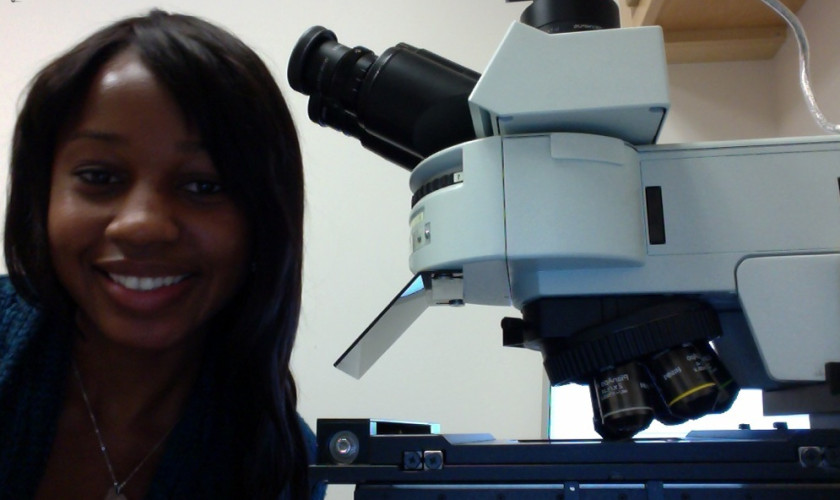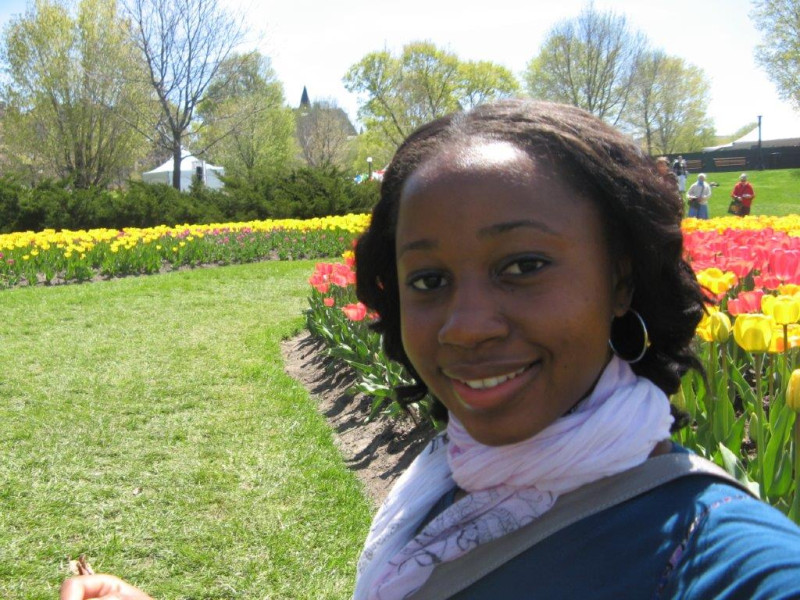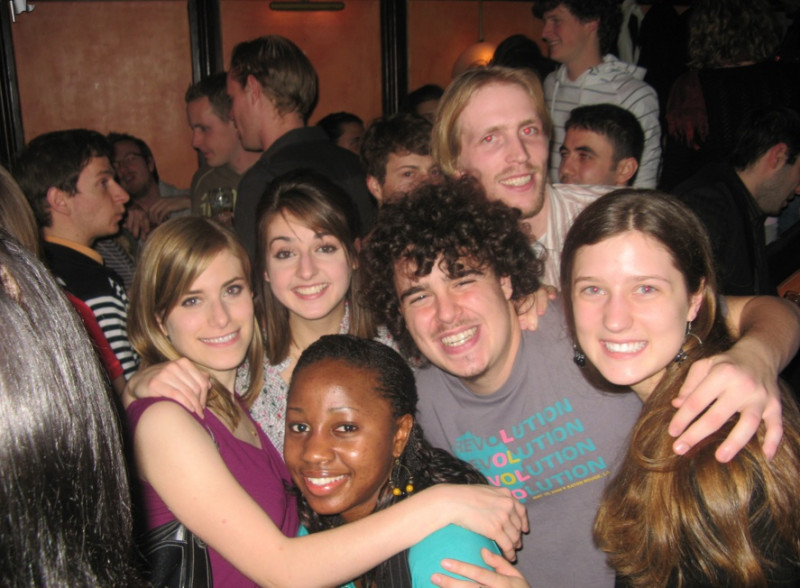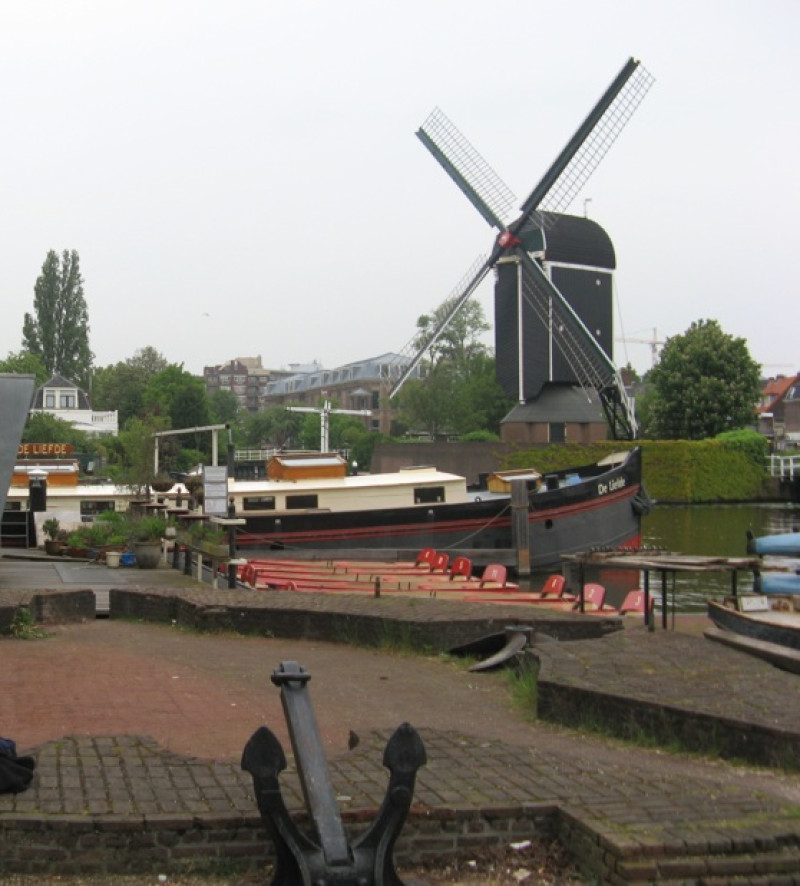1. Why did you choose to study abroad in this country? Did anything about this country surprise you / was it different than you expected?
Studying abroad had always been one of those experiences that I hear other students talk about and I wanted to experience it for myself. I saw the opportunity to enrich my University career and, really, just do something different. I decided to study in the Netherlands because the research being conducted by Professor Bernhard Hommel was in the field of Psychology. As I’ve never been to Europe, this was a great place to start.
The first day, I arrived in the Netherlands, and subsequently made my way to Leiden, I was surprised by the quaintness of the city with its cobbled stone streets and canals. I quickly realized that it was hard for others to understand the Dutch words I was attempting to speak (e.g. when asking for directions to my housing, Hugo de Grootstraat) because I didn’t use the right inflection, but they were equally nice and accommodating.
2. What was your favorite trip you took while you were there?
I wouldn’t say that I had a favorite trip; it was more like I had a lot of them. One of these was the trip I took with Caroline Leeds, and her cousin Nicole. We went to Keukenhof in Lisse, the world’s most beautiful spring gardens. It was such a gorgeous view and a great place to lose oneself for the day. There were flowers I’d never seen before and the landscape was really creative and amazing. We had such a wonderful time that I was less stressed and more inspired to return to my research with a clear head.
3. How did you meet locals? Have you stayed in touch?
I met the locals through the International Student Network, my work at the Cognitive Psychology Unit at Universiteit Leiden, the welcome parties and the bar nights. From there we were able to develop lasting friendships and fun memories. It was a nice mix of students from every part of the world and we each, in our own way, embraced our cultures and shared it with others. For the most part, we have stayed in touch through Facebook, but hopefully we can all plan a reunion in the future.
4. How do you think study abroad will help you in your future?
I think that studying abroad is already helping my future. Because of the program, I was able to work on an Honors thesis project after my return to Rutgers University in the United States, and both of these experiences improved the look of my Curriculum vitae. I am happy to say that a manuscript resulting from my honors thesis work on mice and alcohol susceptibility was recently accepted for publication in the journal “Progress in Neuro-Psychopharmacology & Biological Psychiatry”.
I believe that the sense of independence and extroversion garnered from studying abroad is one that I wouldn’t trade for anything. Also, being able to conduct an independent research project was really helpful in the work I’m doing now that will eventually lead to my PhD thesis (e.g. I approach literature reviews with a more critical eye). In a less academic sense, my study abroad makes for a nice conversation piece.
5. What advice do you have for a student thinking about studying abroad in this country?
I would advice a student thinking about studying abroad to highly consider doing it. Experiences like these don’t happen every day, and you’ll be enriching your academic career. Some people have mentioned to me that they didn’t really have an idea of what they wanted to study for their Bachelor’s degree and beyond, so I think that studying abroad will provide a fresh perspective and better clarity, and it would help you if you’re having doubts about your academic plans. The added incentives are the people you’ll get to meet, and the amazing locations you’ll have the opportunity to see. I will warn you though that counter-culture shock is no joke. You’ll have such a wonderful time that you’ll feel like it was all a nice dream. Well, it isn’t a dream, so I would suggest enjoying every minute of it.
6. Anything else you would like to share with us?
I love that the EuroScholars Program was and continues to be available for students. They get to see how research is conducted in countries abroad as well as either work on a project of their own or take classes. Depending on the country, the language barrier might be a little bump on the road, but for the most part, the people speak English, and from my experience, they were really welcoming. My study abroad experience was from January 2009 until June 2009, and to this day I am still very appreciative that I had the opportunity to study abroad, especially as a EuroScholar. The experiences and memories will continue to stay with me for a long time to come.




